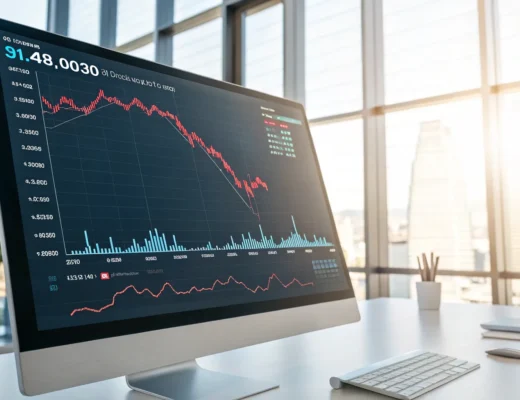Warren Buffett’s Berkshire Hathaway began buying shares in five major Japanese trading companies nearly five years ago. These companies, known as “Sogo Shoshas,” have caught the attention of retail investors in Japan. The five companies favored by Buffett are Itochu, Sumitomo, Marubeni, Mitsubishi, and Mitsui.
Berkshire Hathaway accumulated about a 5% stake in each of these companies starting in August 2020 and increased their investments in November 2022. Traditionally, the core business of these giants was import and export. However, they have evolved to become more like investment holding companies while overseeing various operating companies.
They are big players in sectors such as metals, mining, and energy. The appeal of strong business models and stellar shareholder returns has driven Japanese retail investors to increase their investments in trading house stocks. For the first time since March, Mitsubishi Corp.
Buffett follows the sogo shosha strategy
ranked third among retail holdings under the tax-exempt Nippon Individual Savings Accounts (NISA) program. Naomi Kurimoto from SBI Securities said, “Many individual investors feel that their value-investing style aligns with
Warren Buffett, who is known for such an approach, and they are inclined to follow his lead — ‘If Buffett is buying, I’ll follow’.
Despite cautious profit forecasts and setting aside funds to hedge against tariff uncertainty, Japanese trading companies have been proactive in increasing dividends.
The projected 12-month
dividend yields for most of these companies surpass the estimated 2025 average for the Topix index. Corporate governance reforms, such as encouraging stock splits by the Tokyo Stock Exchange, are making these
investments more accessible to retail investors. Mitsubishi Corp and Mitsui & Co.
have conducted stock splits to lower the minimum investment amount. The total amount of new purchases under the NISA
program in 2024 reached approximately ¥12.5 trillion ($87.4 billion), with 25.6 million NISA accounts by the end of the year. Rakuten Securities held the largest share with 6 million accounts, followed by SBI Securities with 5.36 million.
HSBC strategists suggest that a mere 1 percentage point shift from cash into domestic stocks by Japanese investors could
unleash $220 billion of flows into equities, positively impacting the market.







